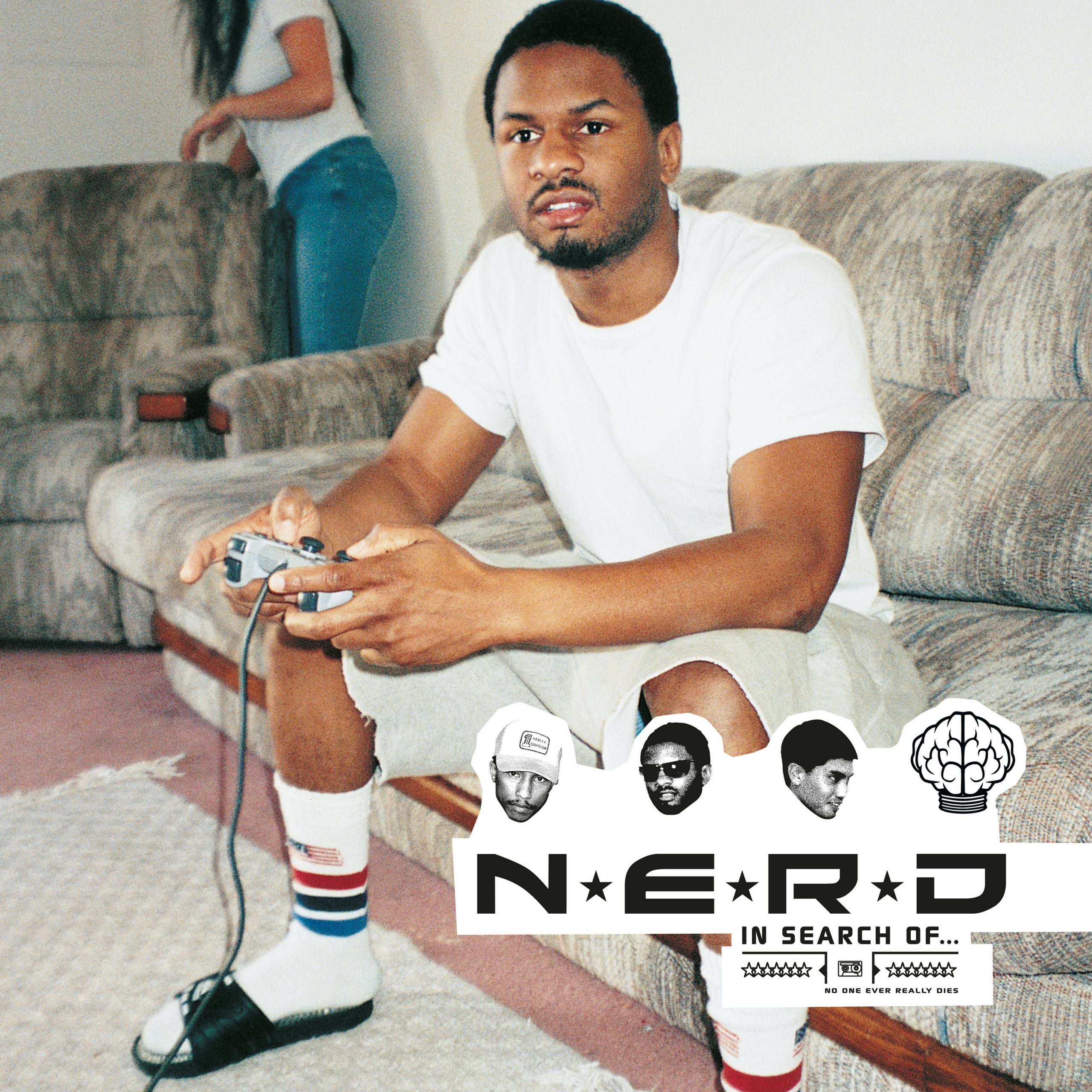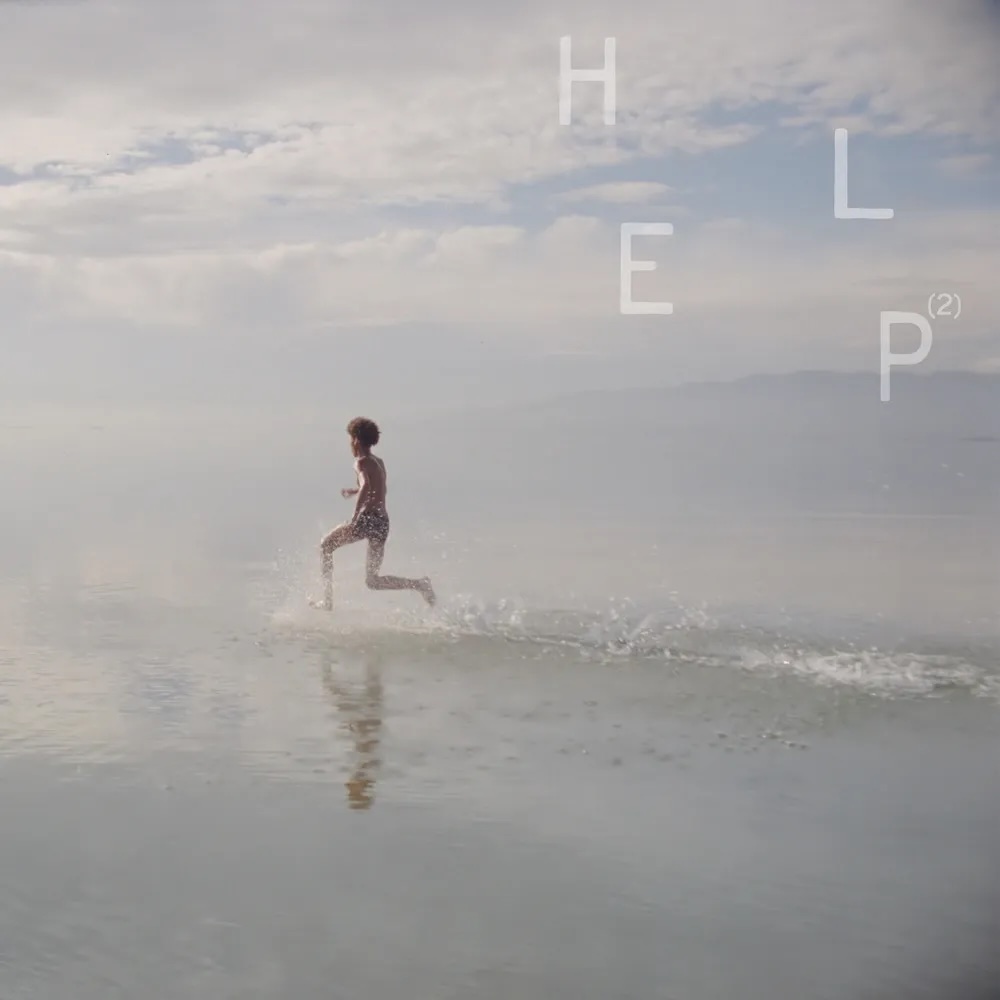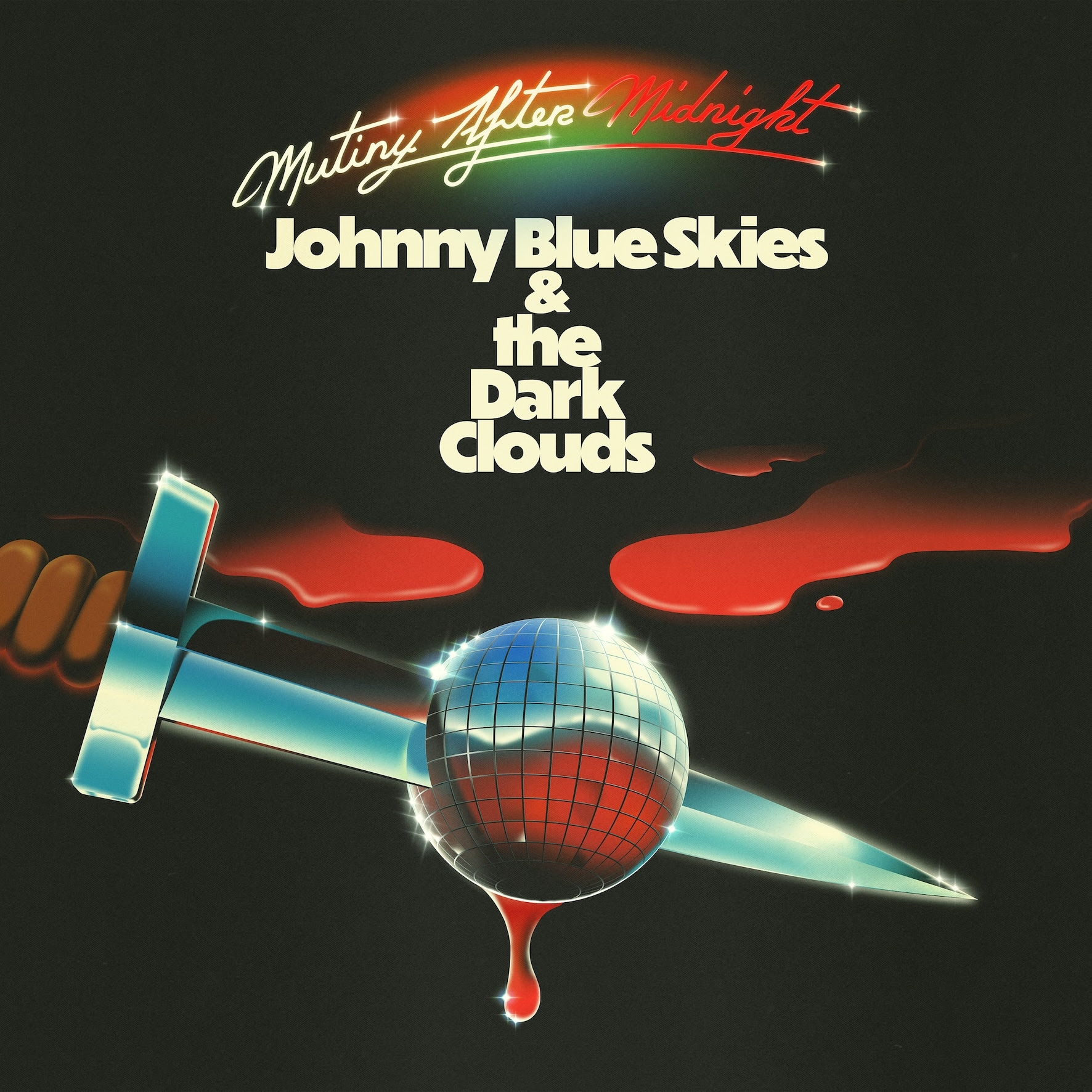- Star Trak/Virgin/EMI
- 2001
Before Tyler, The Creator told Black kids "they can be who they are," there was Pharrell Williams. Aptly nicknamed "Skateboard P," the Virginia-bred multi-hyphenate unapologetically represented alt-Black kids who stanned skate culture, trucker hats, and hardcore punk. At a time when he exerted profound influence over mainstream music, Williams started progressive hip-hop trio N.E.R.D. with childhood friends Chad Hugo and Shae Haley, infusing rap-rock with fresh energy just as the nu-metal scene was starting to curdle. On their debut album In Search Of…, which turns 20 today, the group positioned themselves as forward-thinking hip-hop anomalies of the early 2000s.
Williams and Hugo were at a middle school jazz band summer camp when serendipity had its way. Both 12 years old, the two aligned over musicianship -- Williams was a percussionist, while Hugo played saxophone -- while scouring their parents and neighbors' record collections, predestining their creative futures. They kept playing the school band at Princess Anne High School while beginning to make their own music in projects such as Dead Poets Society and Surrounded By Idiots, a group that aligned a teenage Pharrell with Timbaland & Magoo. Eventually Williams and Hugo formed a "Native Tongue, R&B type of group" called the Neptunes with Shae Haley and Mike Etheridge. At a 1992 talent show, this early version of the Neptunes was introduced to fellow Virginian and new jack swing hit-maker extraordinaire Teddy Riley, who took them on as proteges.
Under Riley's guidance, Hugo and Williams began writing and producing early '90s hip-hop and R&B highlights such as SWV's "Use Your Heart" and Wreckx-N-Effect's "Rump Shaker" while still in high school. Fittingly for a group named after the Roman god who presides over water, a decade later the duo quite literally ruled the airwaves, a reign that began in earnest with their work on N.O.R.E.'s 1998 hit "Superthug." Soon they were working with artists ranging from Britney Spears ("I'm A Slave 4 U") to Jay-Z ("I Just Wanna Love U (Give It 2 Me)") to Ray J ("Wait A Minute") and overseeing full albums by the likes of Clipse and Kelis. Known for their signature four-count start, synthetic notes, and lush, minimalist keyboard sonics that redefined hip-hop and crossover genres, Hugo and Williams were an incomparable tour de force at their peak. They developed such a firm grip on pop that by 2003, one survey found that 43% of songs on US radio were produced by the Neptunes.
In the midst of this run, they started a rap-rock band. Along with their high school bandmate Haley, who can be seen engrossed in a video game on the In Search Of... album cover, Williams and Hugo formed N.E.R.D. -- an acronym for "No One Ever Really Dies" -- as a spinoff enclave under their boutique label Star Trak Entertainment. Embracing their role as hip-hop misfits that didn't subscribe to hood culture, Williams explained N.E.R.D.'s trajectory in a 2002 New York Times article:
We do not think with any limitations. Music doesn't discriminate about who it subscribes to. It subscribes to the spirit, it subscribes to the subconscious, whether you like it or not. And if music doesn't discriminate, then why should we when we're tuning in to creativity? You don't have to live in a box unless you put yourself in a box.
The group's commitment to versatility extended to making two distinct versions of their debut album. The original In Search Of... released in the UK in the summer of 2001 was laced with artificial production in line with N.E.R.D.'s pop-rap vision. After working with No Doubt on their Rock Steady album -- the beginning of a long hit-making partnership between Pharrell and Gwen Stefani -- N.E.R.D. linked with Minneapolis power-pop band Spymob and recorded a live version of the album, drenched with rock signifiers that played as kitsch in hip-hop terms. Reviews were mixed, but a 2002 Slant article summarized N.E.R.D.'s intention well: "Kudos to a production team that, rather than predictably stick to their radio-ready formulas, has dared to push the envelope straight out of hip-hop's comfort zone." Hugo echoed that sentiment in Pharrell's 2012 coffee table book Pharrell: Places And Spaces I've Been. "We had roots at making music anyway. Shae was into DJ'ing and Pharrell and I were in a marching band, so it wasn't anything to make it and do the unplugged version. It was just fun, and we were trying to embrace technology at the same time by doing the synthetic version."
In Search Of... opened with "Lapdance," a raunchy dancefloor cut that also found time to question the government's ethics. With an infectious hook by Murder Inc. rapper Vita and one-verse rapper Lee Harvey (seriously, "Lapdance" is his only song to date), the music video was a tantalizing mise-en-scène rife with strippers and street biking. The visual also boasted cameos from fellow Star Trak artists Clipse and Kelis, the screamo-esque first lady of the imprint. (She later severed ties with the Neptunes, saying they "stole" money from her first two albums via unethical contracts.)
Although the Neptunes had developed an unmistakable signature sound, they brought an impressive stylistic range to N.E.R.D. In Search Of...'s final single, "Provider," was a country-western ballad about the misfortune that befalls a drug dealer attempting to be a family man. On follow-up track "Truth Or Dare" featuring Kelis and Clipse's Pusha T, the energy amped up as Williams and Kelis' vocals were intertwined over a funk-rock backdrop. Pitchfork's review somewhat dismissively noted that the drummer "could easily have cut his teeth in a Slipknot cover band." Instead of fitting radio standards, N.E.R.D. acquiesced to soulful griminess throughout the album.
Hugo was married with two kids by 2001, but Williams was enjoying his bachelorhood and playing up his sensuality as N.E.R.D.'s frontman. Beyond "Lapdance," the bubblegum standout "Things Are Getting Better" found Williams teasingly crooning towards his object of desire, while the guitar-riffed "Brain" -- a thematic tie-in with the cartoon brain that served as the group's logo -- could just as easily be a celebration of fellatio or a woman’s intellect. "Tape You" was a kinky lighthearted escapade of risqué home videos and captured memories; Williams’ signature chillness shined in the song’s laid-back verse, "Relax girl/ Sip some of my slurpee/ You don't have to lie to me/ It's fly to me." Pornographic exploits aside, In Search Of... chronicled affection on tracks "Run To The Sun" and "Stay Together," where Pharrell's falsetto became a liminal orb between '70s soul and 2000s pop.
Williams had logged a few guest vocals by this point, but In Search Of... introduced him as a soon-to-be icon -- or in the language of the album's signature epic, a "Rock Star." More than a decade before the good-times vibes of "Get Lucky" and "Happy," Pharrell was testing "fuckin' posers," stretching syllables on the song's defiant hook: "You can't be me, I'm a rockstar/ I'm rhyming on the top of a cop car/ I'm a rebel and my .44 pops far/ It's almost over now, it's almost over now/ Yes, you ain't heard that we swallow guys/ It's too damn late to apologize/ When you see the mantle or will you see the skies/ It's almost over now, almost over now."
In another sense, it had just begun. After Williams and Hugo had risen from their school-band beginnings to revolutionize the sound of hip-hop, In Search Of... introduced them as nonconformists who made progressive genres their playground. Although not fully embraced or understood at the time, N.E.R.D. became one of the most influential groups of the Y2K era, one whose impact is still heard in current-day acts like Tyler, The Creator, Brockhampton and the Internet. In Search Of... was the sound of the mainstream's most influential producers diverging from commercial expectations, an authentic glimpse into artistic freedom and friendship through exploration.






